From October 21 to 25, 2024, two second-year students and three third-year students from the Sport and Security program participated in an international Erasmus+ module organized by our partner institution, the Theresian Military Academy. We invite you to read the account of the stay in Austria sent by student Lech Tillack.
"The Theresian Military Academy was established on December 14, 1751, in Wiener Neustadt, Austria, by Empress Maria Theresa. The module focused on the area of the Common Security and Defence Policy (CSDP). The CSDP is a military framework that forms an integral part of the EU's Common Foreign and Security Policy, providing the European Union with operational capability based on both civilian and military resources. It encompasses the gradual development of a common defense policy for the Union and may, in the future, lead to the creation of a collective defense if the European Council, acting unanimously, so decides.
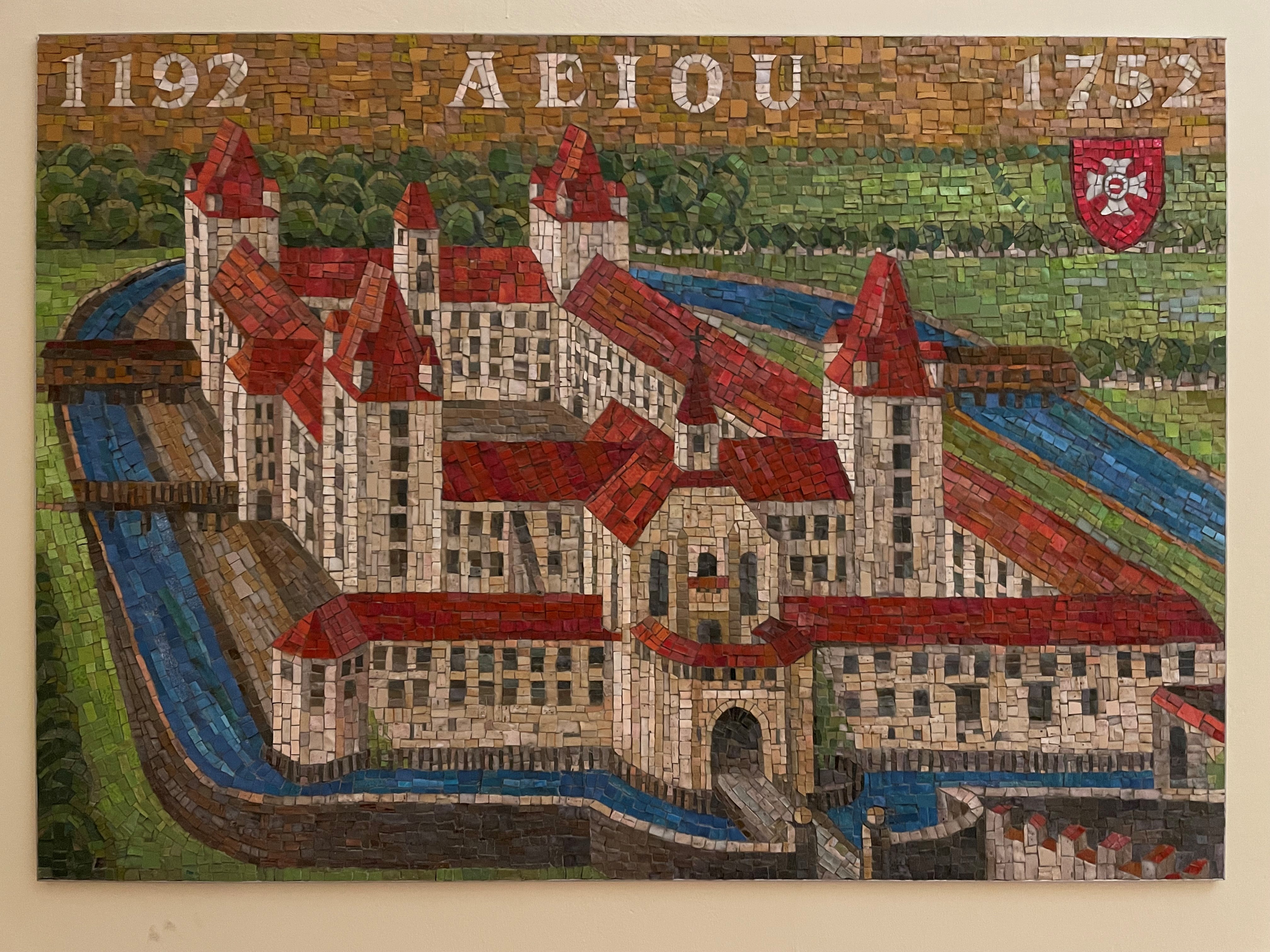
(Photo of the mosaic with a view of the academy)
The full "Erasmus+ class" consisted of 106 students from countries such as Austria, Bosnia and Herzegovina, the Czech Republic, Denmark, Estonia, Spain, Canada, Lithuania, North Macedonia, Germany, Poland, Romania, the USA, and Italy. Theoretical and practical tasks presented in the program were tackled in international groups of ten participants each.
The module instructors included (in the order of the schedule): the Secretary General of the Austrian Ministry of Defense, who lectured on "Harmonizing Basic Officer Education"; Polish scholars, who presented current insights on EU integration with the CSDP, acts of terrorism committed by women, and the EU's relations with non-EU countries. Colonels from the armed forces of Austria, Poland, and Romania provided knowledge on topics including EU policies for ensuring security across the world’s oceans, combat group concepts for land forces, experiences from missions in Afghanistan, Iraq, Bosnia and Herzegovina, and civil-military cooperation (CIMIC), which entails establishing and maintaining contacts between military and civil authorities, as well as with the civilian population in operational areas, with respect to social, political, cultural, economic, environmental, and humanitarian factors.
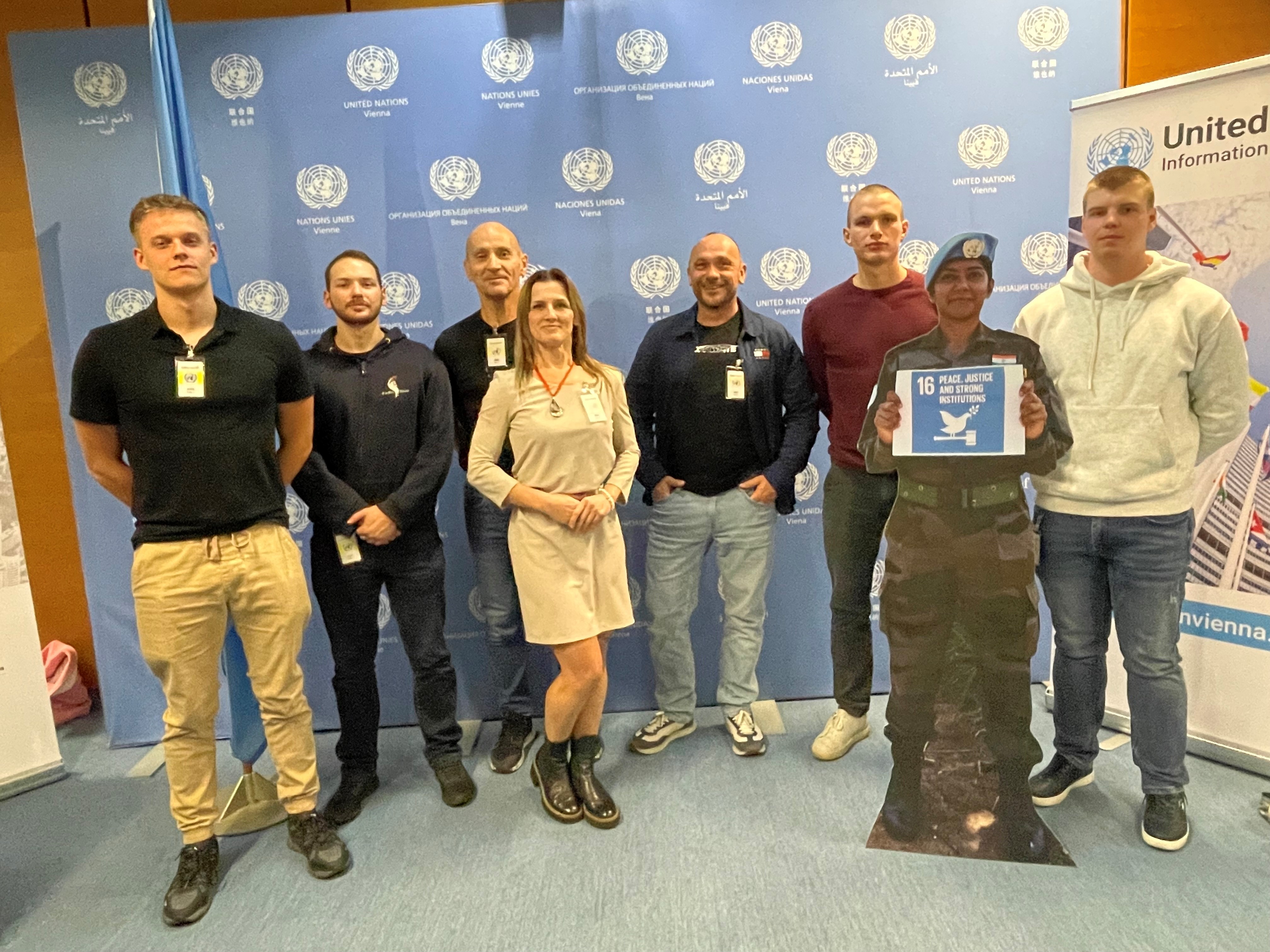
(Representatives of Opole University of Technology at the UN - Vienna)
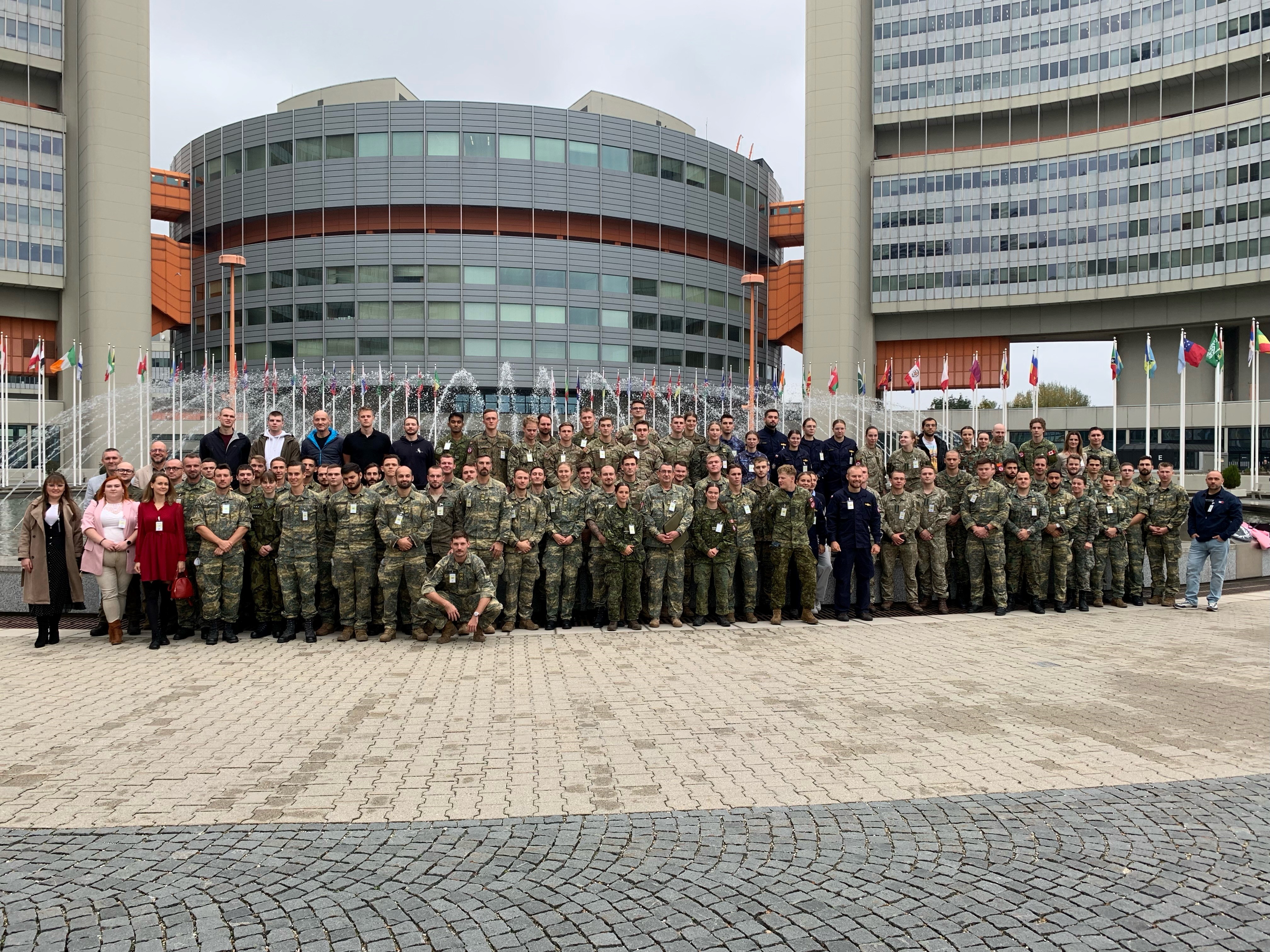
(Tour of one of the main UN headquarters - Vienna)
The knowledge students had on these topics at the beginning of the course was compared to the knowledge they acquired during this week's block through identical pre- and post-tests. Results confirmed an approximate doubling of students' knowledge by the end of the course compared to the initial level.
Student integration primarily involved working together in ten-person groups to create presentations on three different topics assigned by the instructors, which were later presented to all Erasmus+ program participants.
However, the activities were not limited to theoretical topics; all ten-person groups participated in joint sports and agility competitions, which included intelligence and psychological tests. These activities revealed individual traits in participants, such as readiness to assume group leadership, awareness of each member’s personal potential, skill in assigning suitable tasks to appropriate members, and speed in making (correct) decisions. The winning participants were honored with medals and certificates during a formal banquet at a local restaurant.
On the third day, participants were transported by bus to Vienna for a tour of the UN headquarters, where they observed a live debate among members of the International Atomic Energy Agency (IAEA), admired displays of Nobel Peace Prizes, an original lunar rock sample brought to Earth, and a replica of Neil A. Armstrong’s spacesuit, worn during his historic first step on the Moon.
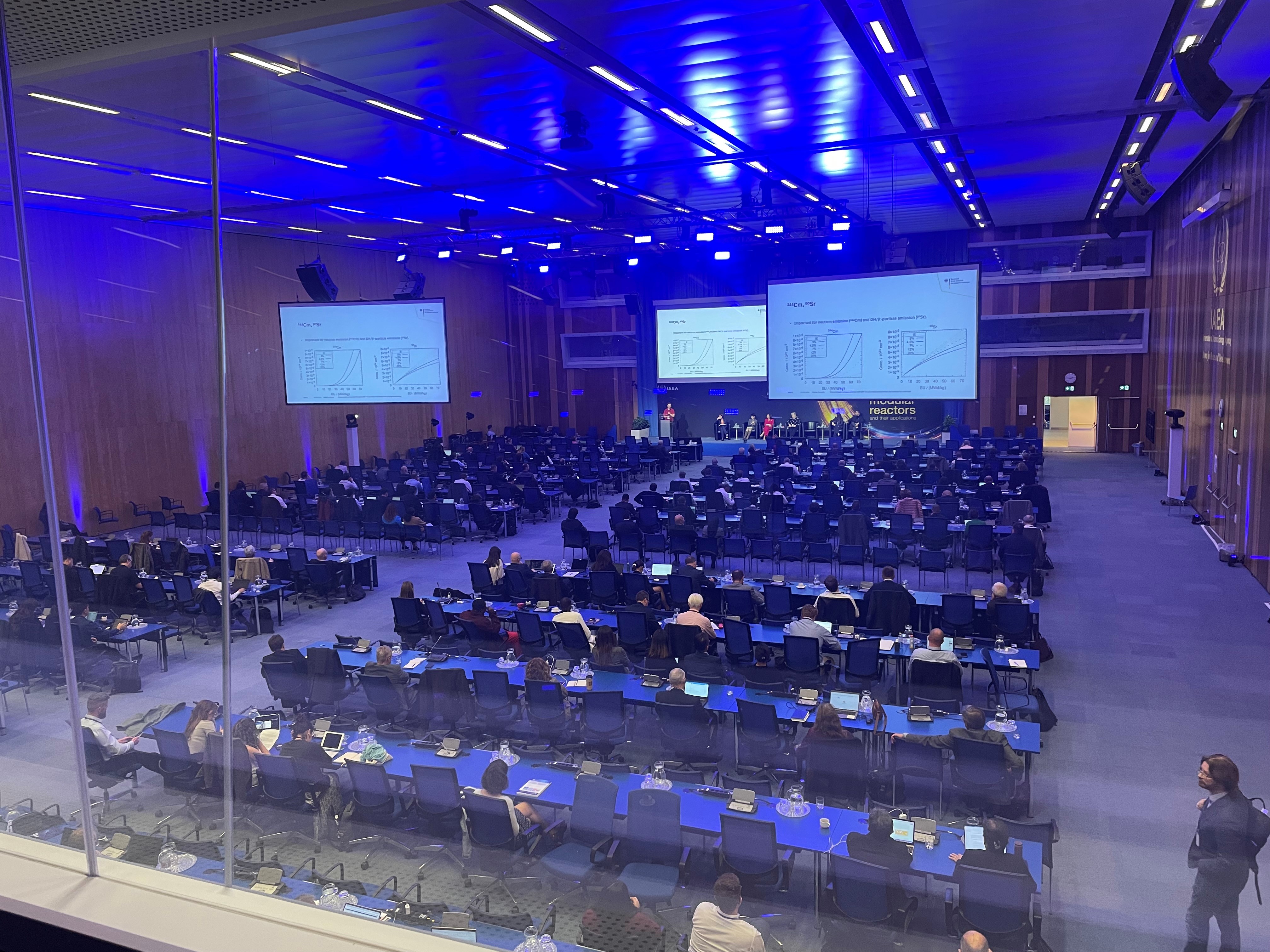
(IAEA Conference inside the UN)
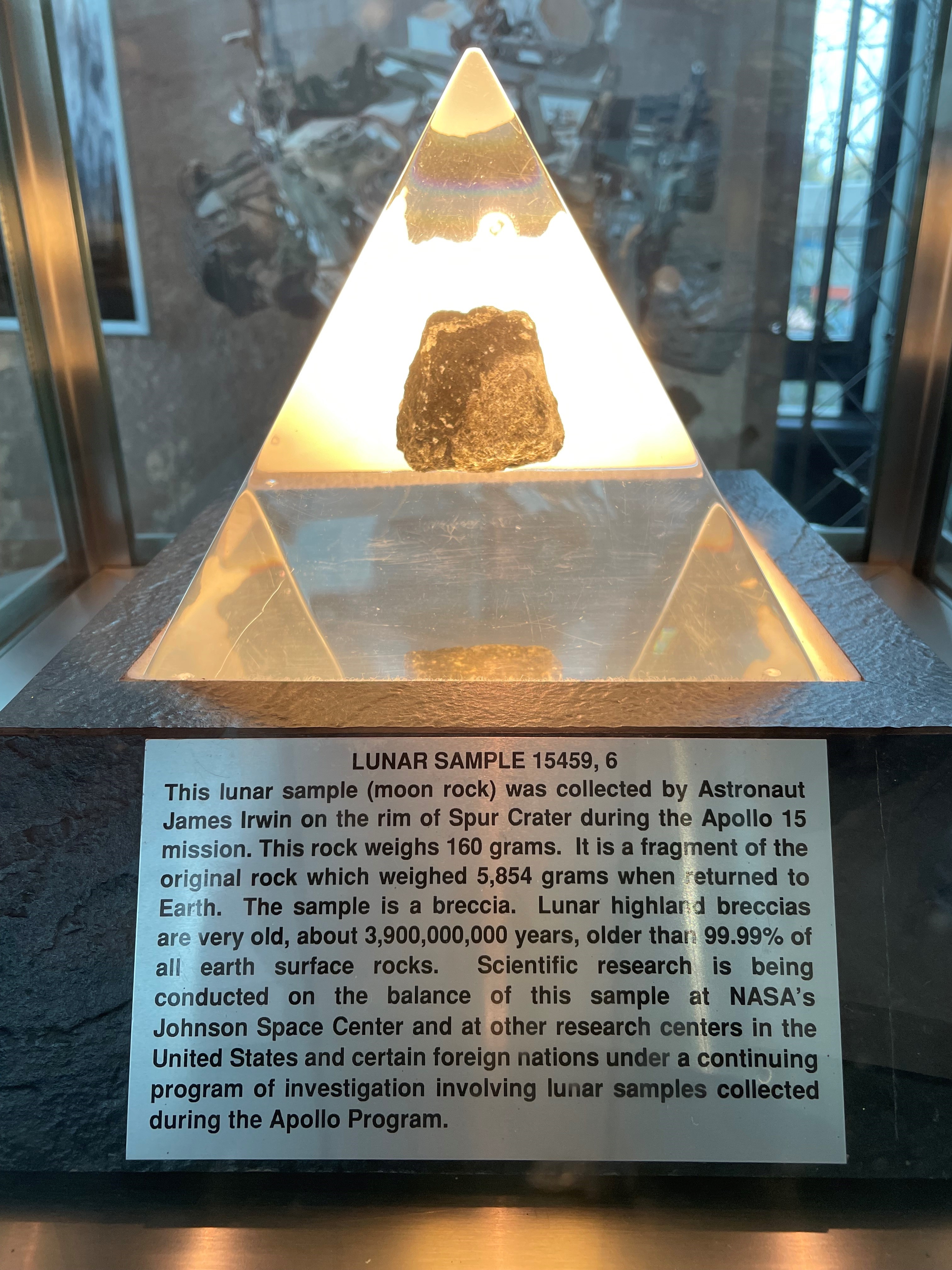
(Moon rock)
The module took place at yet another military academy (for some of us), offering our civilian students an excellent opportunity to observe the differences between the education of military academy cadets and our own civilian studies, including their behavior towards each other, their interactions with academy guests, the discipline upheld, and various customs. The daily cadet assemblies in the inner courtyard of the castle, followed by shared breakfasts in the academy’s canteen, fostered discussions on various topics such as education, culture, sports, cuisine, and leisure.
In addition to the facilities at the Theresian Military Academy, Erasmus+ participants visited St. George’s Cathedral (where Emperor Maximilian I’s remains rest) and the castle itself, where classes are held. They also utilized numerous sports facilities, including a sports hall, gym, 400-meter running track with permanently installed military pentathlon obstacles, and marked running trails in a nearby 2 km² park, which features around twelve monuments and memorials, as well as the academy cemetery.
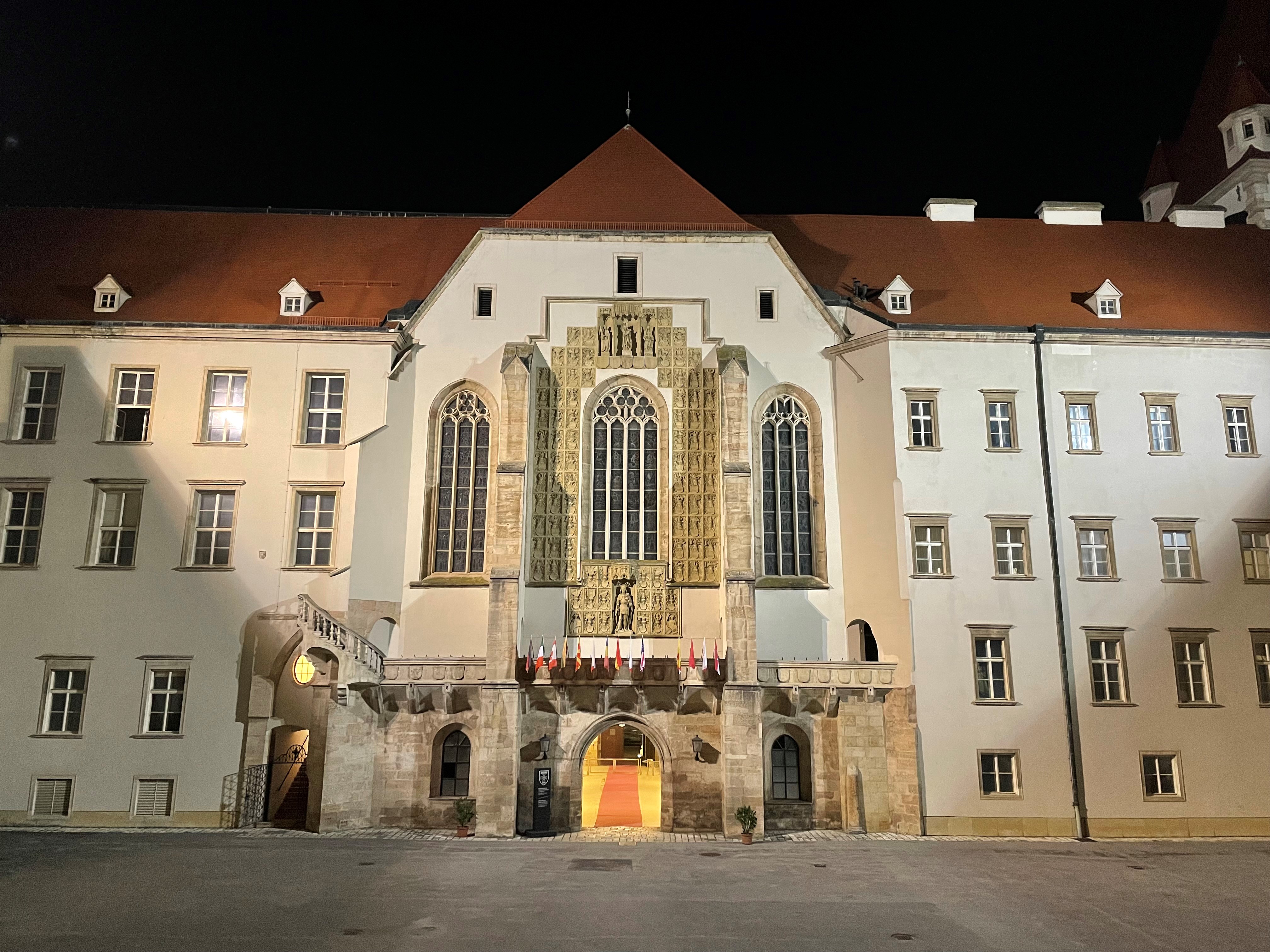
(View from the castle courtyard of St. George’s Cathedral - inner courtyard of the academy)
The stay concluded in the Royal Hall of the Theresian Military Academy with a formal ceremony, where Erasmus+ participants received certificates of module completion, along with unique coins and emblems, serving as valuable mementos of their participation in this international student exchange program.
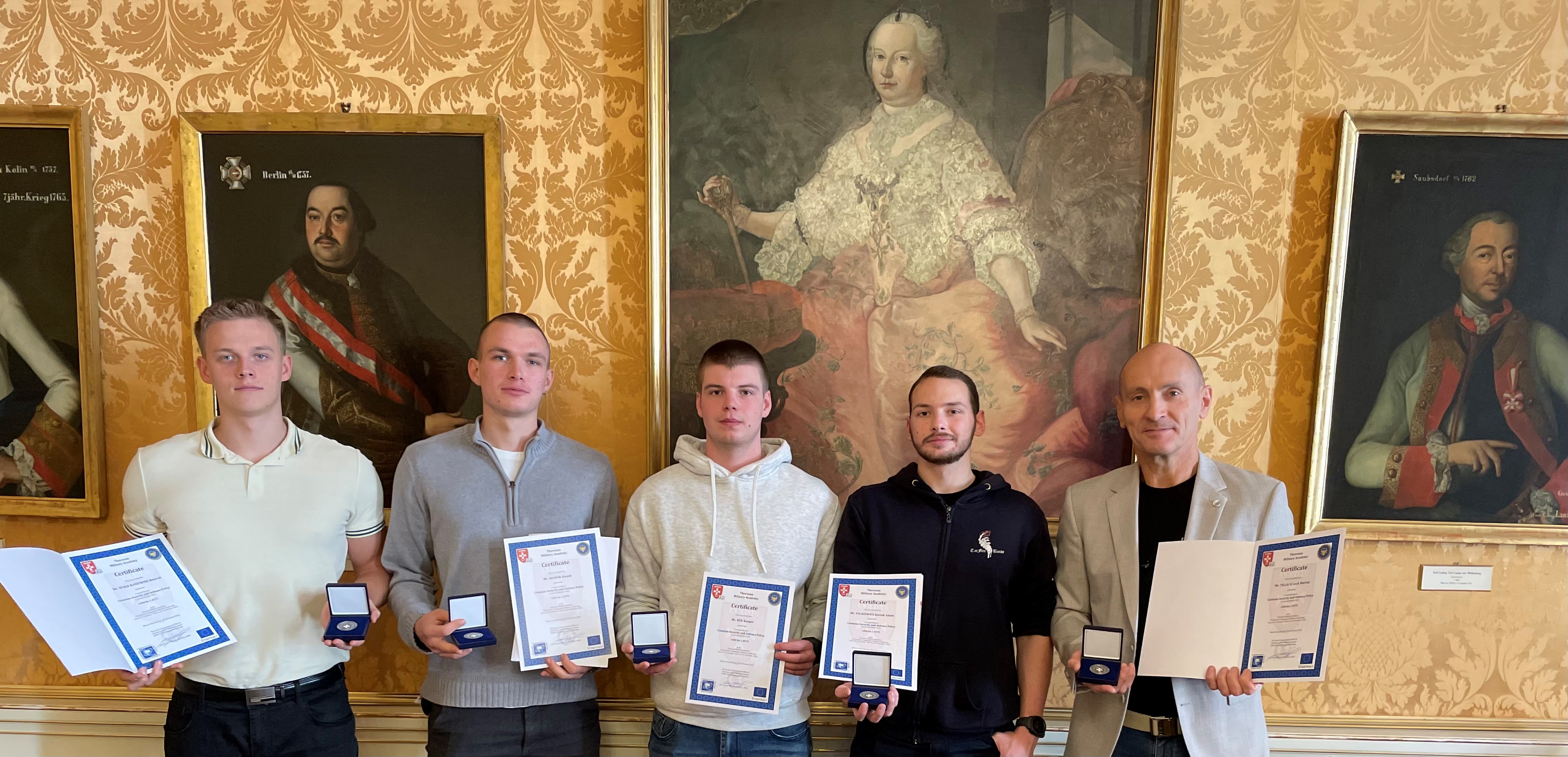
(Formal certificate presentation in the Knights' Hall )
We highly recommend this short format of the Erasmus+ program to all our university students as an opportunity to spend time abroad, get to know other universities, cultures, and people, and also to consider whether a full-semester stay at a given institution would be suitable for them.
We extend our sincere thanks to all the ladies from the Erasmus+ office for their exemplary support before, during, and after the program.
On behalf of all participants,
Lech Tillack"



